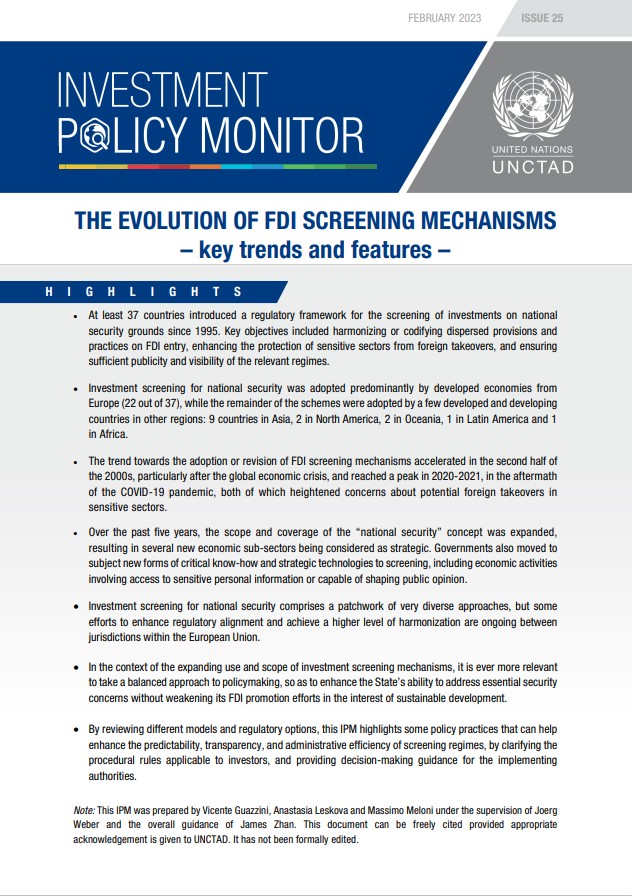The Evolution of FDI screening mechanisms - key trends and features
The latest issue of UNCTAD's Investment Policy Monitor (No. 25) focuses on one of the most significant trends in recent investment policymaking: the rising adoption of investment screening mechanisms based on national security concerns. By reviewing different models and regulatory options, the IPM highlights some policy practices that can help enhance the predictability, transparency, and administrative efficiency of screening regimes, by clarifying the procedural rules applicable to investors, and providing decision-making guidance for the implementing authorities.
Highlights
- At least 37 countries introduced a regulatory framework for the screening of investments on national security grounds since 1995. Key objectives included harmonizing or codifying dispersed provisions and practices on FDI entry, enhancing the protection of sensitive sectors from foreign takeovers, and ensuring sufficient publicity and visibility of the relevant regimes.
- Investment screening for national security was adopted predominantly by developed economies from Europe (22 out of 37), while the remainder of the schemes were adopted by a few developed and developing countries in other regions: 9 countries in Asia, 2 in North America, 2 in Oceania, 1 in Latin America and 1 in Africa.
- The trend towards the adoption or revision of FDI screening mechanisms accelerated in the second half of the 2000s, particularly after the global economic crisis, and reached a peak in 2020-2021, in the aftermath of the COVID-19 pandemic, both of which heightened concerns about potential foreign takeovers in sensitive sectors.
- Over the past five years, the scope and coverage of the “national security” concept was expanded, resulting in several new economic sub-sectors being considered as strategic. Governments also moved to subject new forms of critical know-how and strategic technologies to screening, including economic activities involving access to sensitive personal information or capable of shaping public opinion.
- Investment screening for national security comprises a patchwork of very diverse approaches, but some efforts to enhance regulatory alignment and achieve a higher level of harmonization are ongoing between jurisdictions within the European Union.
- In the context of the expanding use and scope of investment screening mechanisms, it is ever more relevant to take a balanced approach to policymaking, so as to enhance the State’s ability to address essential security concerns without weakening its FDI promotion efforts in the interest of sustainable development.
















